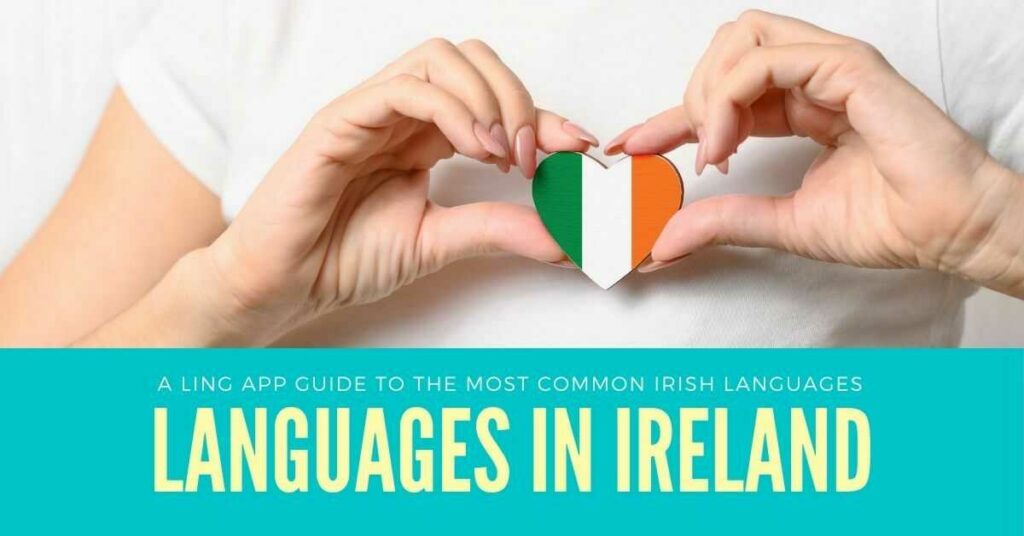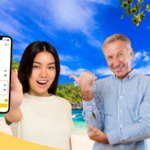Whether you are a traveler or not, learning the official languages in Ireland allows you to communicate effectively with the locals. It will help you appreciate better the country, culture, and its people. Compared to its neighboring countries, Ireland can be considered as one of the top tourist destinations since it is the home to some of the UNESCO World Heritage sites and the backdrop to a few historical movies. Trust us when we say that it is an understatement to say it is a “magical place.” This post will walk you through the two languages you need to learn and the other foreign languages that can help you get by in the country like a pro.
The Republic of Ireland, also known as the Emerald Isle, is situated in Northern Europe and the North Atlantic Ocean, and it is considered the third largest island in all of Europe. Given its strategic location, it uses a language heavily influenced by the Indo-European language family. This is why most of the expressions are somewhat similar to Scottish Gaelic, Welsh, Manx (Isle of Man), and Cornish. If you are planning to visit the country today, though, you might be surprised to know that only a few percentages of people get to use their first language in day-to-day situations. Find out more about this below.
The Widely Spoken Languages In Ireland
As the saying goes, “If you talk to a man in a language he understands, that goes to his head. If you talk to him in his own language, that goes to his heart.” That is especially true if you are a traveler interested in truly creating a special bond with the locals, and who wouldn’t want that, right? In Ireland, English and the Irish language are two of the most widely spoken languages since they enjoy “official” status.
With this being said, English-speaking travelers will not find it hard to roam around the country since about 97.51% of the population uses it- may it be in government transactions, media, and even some of the primary road signs or public announcements are all in English. However, before you book your ticket and prepare your itinerary… let us first dive into the details of these recognized languages.
Irish Language (Gaeilge)
If only one Celtic language remains to have its charming poetic flow even today, then that would definitely be the Gaelic language in Ireland. It is the constitutionally recognized first language of the country and is also part of the official languages of the European Union. Historically speaking, the language was first discovered in inscriptions from the third or fourth century AD and was continued to be used in Gaeltacht areas. It has consistently been transforming and was also called by the following names:
- Primitive Irish – Ireland’s earliest language was dating back to 300 AD.
- Old Irish – The official language back in 500 AD and was being used in Latin manuscripts.
- Middle Irish – The type of Irish used between 900 to 1200 AD.
- Classical Gaelic -Used for poetry in Ireland and Scotland in 1200 AD.
- Early Modern Irish – This is the kind of Irish language used today.
While it may have an amazing local history that spans centuries, it is only spoken today by about 17.09% of the population since almost everyone is now more confident in using English. It continues to be taught in schools which is why almost everyone still understands it.
Since the government is seeing the sudden change of popularity of the Irish language and that it has an endangered status, they have created the 20-Year Strategy for the Irish Language 2010–2030, which is meant to help preserve it and increase the number of people who can speak it. Other organizations like ICUF and Fulbright have also been launching a number of campaigns to help the country keep the language alive. In 2018, they even took it to social media and had created hashtags like #TrasnaNadTonnta and #Gaeilge2018 to attract language enthusiasts.
With all things considered, Irish is a foreign language that needs your help, and it would be wise to help them keep this alive by trying to master it. Luckily, we at the Ling App have FREE resources for this.
English Language
English is a global language that is spoken in over 67 countries and is considered the best one to master if you want to stay competitive today. For the majority of the Irish population, this is the dominant language and has existed in the country since the 12th century. And just like Tagalog, which has a Taglish version, the Irish people have also created some twists on their type of English known as the Hiberno- English.
Conclusion
As we reach this part of the post, we hope that you were able to learn the languages you need to learn if you want to make your travel or conversations in Ireland hassle-free. We invite you to read our other related Irish language tips post to boost your knowledge of this foreign language if you enjoyed this post. Some of our most recent titles you can refer to are the vocabulary for vegetables, common verbs, and question words.
Also, we hope that you may practice and develop confidence in speaking the language soon. If you’d like to enhance your skills and learn precisely the techniques in the Irish languages, it’s time that you read our most recommended application today!
Interested To Learn Irish Gaeilge?
If you are searching for a resource that will teach you some of the least spoken languages, then the Ling App by Simya Solutions is the platform that you should consider. This language learning app offers you comprehensive lessons created and maintained by real language professionals and native speakers to ensure the quality of translations and explanations from the inside. Once you download it, you can expect:
- Gamified content that will surely get you motivated to level up and learn the language.
- 10-point checkpoint exams to test your skills
- New vocabulary words, expressions, and phrases complete with audio files
- Challenging quizzes to ensure that you understand through and thorough the bite-sized lessons.
So, what do you have to lose? To get started on your language learning journey, download the Ling App from the Playstore or App Store now.







































